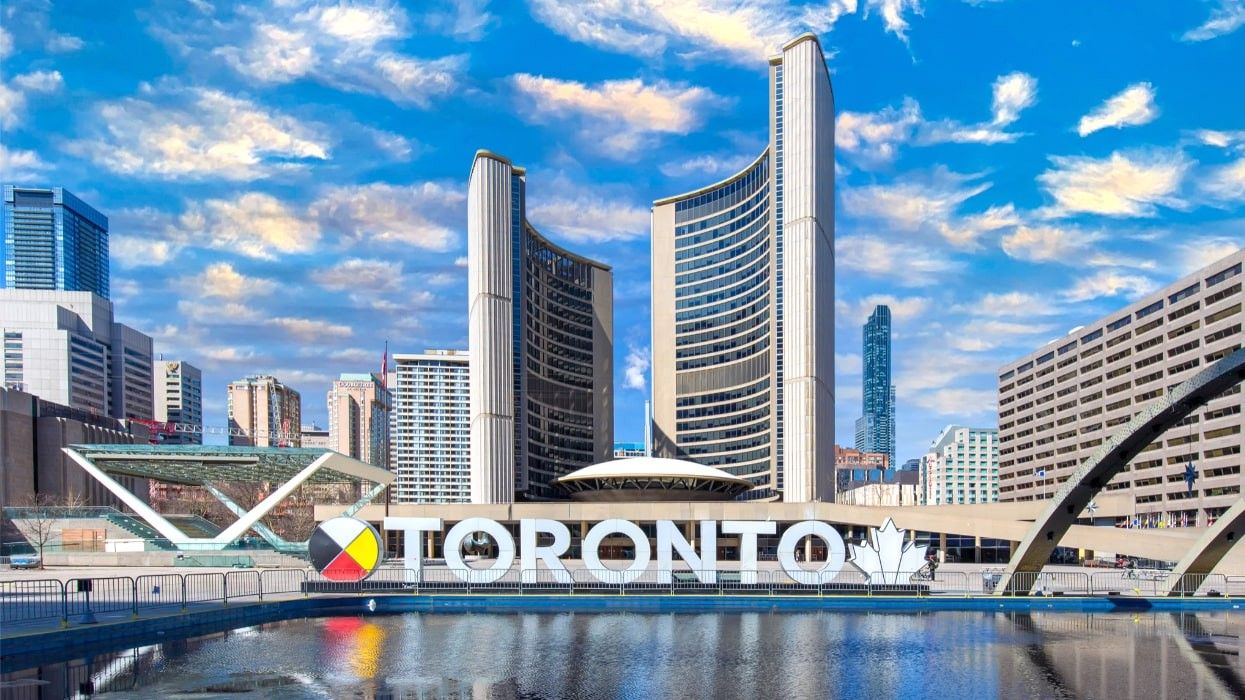The City of Toronto has reached a landmark agreement with the federal government under the Housing Accelerator Fund (HAF).
The deal, announced by officials including Prime Minister Justin Trudeau, Housing Minister Sean Fraser, and Toronto Mayor Olivia Chow, will see Toronto receive over $471M in HAF funding, the largest allocation to date. Toronto will receive 25% of the funds — approximately $117M — up front, and an additional 25% as the City reaches predetermined milestones over the coming years.
The funds will fast-track the creation of nearly 12,000 new housing units over the next three years, and spur the construction of more than 53,000 new homes over the next decade.
"The raw numbers speak for themselves. When you add that much stock to the city's housing supply, we expect it will have a positive impact on the level of affordability. And keep in mind these are additional homes over and above what Toronto was already on pace to build," Fraser told STOREYS.
"Toronto has agreed to allow four units and four storeys as-of-right across the entire city, there are enormous improvements to density near transit stations being implemented, and they're moving forward with a digital permitting process. We're going to be able to build more homes faster as a result of these changes. And it's going to have a positive impact not just over the next couple of years, but forever going forward as a result of these systemic reforms the city is implementing."
The Housing Accelerator Fund is a $4B initiative intended to speed up the creation of 100,000 new homes across Canada by 2026-2027. More than a dozen cities, including Richmond Hill, Mississauga, and Brampton have inked deals since September.
To access funding, local governments are required to submit an application outlining their supply growth targets, as well as specific initiatives they plan to undertake in an effort to boost supply and speed up approvals.
Fraser told STOREYS Toronto's application came together in a "very unique way" compared with other cities that have received HAF funding.
Toronto's initial application to the program "simply did not meet the level of ambition" that Fraser had for the HAF, and he intended to reach out to Mayor Olivia Chow following her election in June. However, she beat him to the punch.
"She actually submitted, on her own prerogative and in collaboration with the City, a revised proposal that was significantly more ambitious," Fraser said, noting that there were still several areas where he still wanted to push the City a bit further, such as zoning around public transit.
"I found it was refreshing to have a willing partner who had no reservations about doing more, but was interested in sharing her ideas and using some of ours. And as a result of that continued back and forth we're in a position to move forward with a nearly half billion dollar deal. This is been a pleasure to work towards, and today is a good day to finalize the agreement and then start implementing the change as quickly as possible thereafter."
As part of its HAF agreement, Toronto will expand existing affordable rental programs and work to improve housing stability for renters, including by establishing a new Rental Protection and Supply Team to source properties, establishing a new Renovations By-Law, and creating a Housing At-Risk Table to support those threatened by eviction.
The funding will support initiatives that encourage below-market rentals, speed up the development process, and streamline the creation of high density and missing middle housing, such as multiplexes and apartment buildings. It will also help build 637 new affordable rental units near public transit stations and support policies that enhance homes’ resiliency to climate change.
Per City Council documents, the agreement includes revitalizing aging Toronto Community Housing Buildings, enhancing the Housing Now Initiative, developing key major growth areas along the waterfront, and identifying sites designated as "Apartment Neighbourhoods" that could accommodate intensification through infill development.
To Fraser, the scale of reforms around transit-oriented development in particular "have the opportunity to fundamentally change the way Toronto builds homes."
"It's not fair for me to see that young people can't afford a place to rent. And if they do, they have an hour-long commute to get to their place of work or their place of study. It's not reasonable for me that a person be expected to work in the core of the city, but not be able to afford a place to live that gets them there in a reasonable amount of time. [Toronto's HAF agreement] is going to dramatically improve the ability of people to find a place that they can actually afford with access to the services and opportunities that they need," Fraser told STOREYS.
"Toronto's housing crisis has an impact on the rest of the country. That 'drive to qualify' phenomenon is well known. People who can't afford to live in Toronto very quickly move to Mississauga, to Brampton, to London, and further down the 401 as prices become out of reach. By creating housing stock in Toronto where people may be working and providing an opportunity for them to live there at a price they can afford, we're not only going to be addressing the housing challenges in Toronto, but it'll have a positive cascade effect on these other communities.
"To have cities like Toronto, Calgary, Vancouver, Hamilton, and Halifax simultaneously launch their most aggressive zoning reform in their their respective histories, to have this happen all at once is resulting in the up-zoning of Canada in a matter of just a few months. I couldn't be more excited about the impact that it's going to have."





















